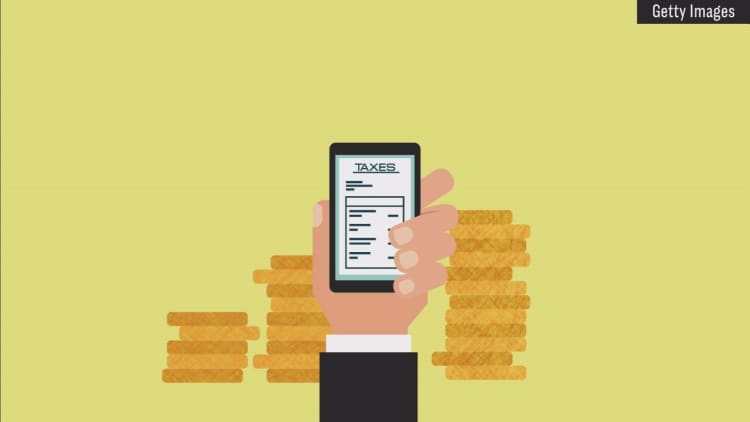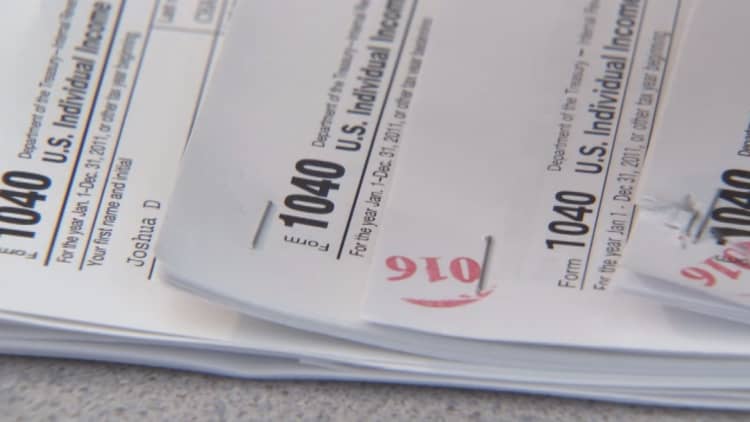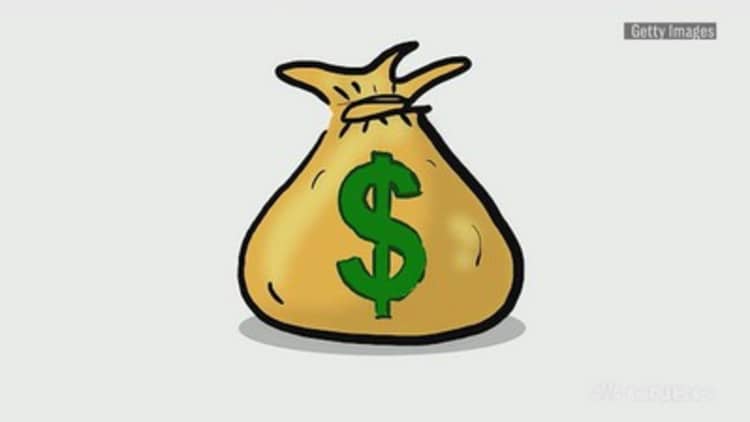There could be more money in your paycheck, thanks to the Tax Cuts and Jobs Act. Chances are, you haven't noticed.
That's according to a new Bankrate.com study, which found that just 24 percent of workers have taken note of the changes to their take-home pay.
Those adjustments began earlier this year to reflect the new income tax withholding tables. The tax reform legislation ushered in changes including an increased standard deduction, the reduction of individual income tax rates and the elimination of personal exemptions.

Now is the time to evaluate how the rules for tax year 2018 will affect you, said Ted Jenkin, CEO and founder of oXYGen Financial Inc. in Alpharetta, Georgia. While you are meeting with your accountant to look at this year's taxes, talk about how your tax situation will shape up next year.
It would be smart not to let that extra cash vaporize in your savings account.Ted JenkinCEO and founder of oXYGen Financial Inc.
One particular thing to watch out for: Whether you are withholding too much or too little under the new rules. If you normally file as married or single, you want to check to see if that's still the best strategy for you.
"Look at your taxes now so you're not surprised next year," Jenkin said.
Put extra money to work
When it comes to the extra money in your paycheck, you want to be strategic.
"It would be smart not to let that extra cash vaporize in your savings account," Jenkin said.
First, start with variable-rate debt including mortgages, student loans and credit cards. As rates rise, you will likely be paying more on those outstanding sums, according to Jenkin.
Next, consider adding to your mortgage payment. Those small amounts can reduce interest paid and add up to shorten the term of your debt, Jenkin said.

"So many people reach retirement and still have a mortgage," Jenkin said. "Having any kind of serious mortgage in retirement really cripples your ability to do other fun stuff."
Then, turn to your retirement savings. Increase your contributions to your 401(k) plan, particularly if you haven't reached the maximum amount toward your company match. Also, consider starting a Roth IRA, which is funded with after-tax funds.
Finally, use the money to boost your skill set, Jenkin suggested, such as online courses from sites like Udemy or MasterClass. Those additional skills can make you a more valuable — and ultimately a higher paid — employee.
Mixed reviews
Those who have noticed changes to their pay are mostly satisfied with the results, according to Bankrate.com's survey.
On a scale of one to 10, 28 percent of respondents rated the changes a 10, indicating they are "extremely satisfied" with their paychecks. Another 58 percent of respondents gave the changes an eight or higher.

But not everyone is so happy, with 10 percent rating their feelings on the pay changes a one, or "not at all satisfied," and 14 percent giving the changes a three or lower.
Twenty-eight percent of respondents were in the middle.
Bankrate.com's online survey included 2,195 U.S. adults; 1,071 of those respondents indicated they are employed full or part-time. The survey was conducted in February.
Here are the new income tax brackets for married couples:
| Rate | Taxable Income Bracket |
|---|---|
| 10% | 0 to $19,050 |
| 12% | $19,050 to $77,400 |
| 22% | $77,400 to $165,000 |
| 24% | $165,000 to $315,000 |
| 32% | $315,000 to $400,000 |
| 35% | $400,000 to $600,000 |
| 37% | $600,000 and up |
More from Personal Finance:
Your property taxes just jumped by more than 50 percent. Now what
IRS debuts new tax withholding tool. Here's what you'll pay
Here are 10 tax changes for 2018 you need to know
WATCH: Why that tax refund might not be a good thing



